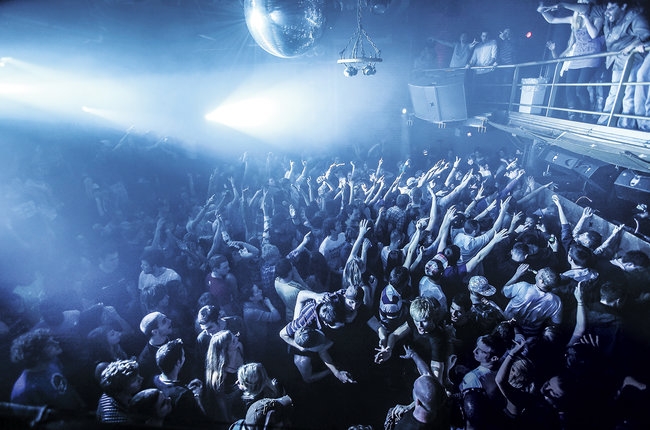A number of leading figures from across the live music industry are calling for a change in licensing laws to help stem the tide of venue closures that have blighted the U.K.'s grassroots music scene in recent years.
The most high-profile casualty of existing licensing regulations is London's Fabric nightclub, which had its license revoked by Islington council in September, following the drug-related deaths of two 18-year-olds earlier in the year. After a high-profile #saveourculture campaign, the club recently won the right to reopen under strict licensing conditions, including an over-19s policy, ID scanners at the entrance and tougher drug enforcement.
Its survival is, however, a rare success story in an increasingly beleaguered and under threat live music scene that has seen the number of small capacity venues in London fall by 35 percent since 2007, sliding from 136 to 88. Numbered among the closures is the Marquee, Astoria and the 12 Bar Club, while dance music clubs that have shuttered in that time include Cable, Dance Tunnel, Madame Jojos and Plastic People. The problem also extends beyond the British capital, with the number of U.K. nightclubs falling from 3,144 to 1,733 in the last decade, according to the Association of Licensed Multiple Retailers.
Changing tastes, gentrification and rising rents are all contributing factors behind the gradual decline of a once-vibrant live music scene, but so too are restrictive licensing regulations that British venue operators have to abide by. It's these that live executives want to see amended.
"Licensing is just one of many areas of the legal framework around grassroots music venues that is contributing to their rapid decline," says Mark Davyd, Chief Executive of the Music Venue Trust -- one of three industry representatives to give evidence to a government select committee earlier today (Nov. 06) as part of a year-long investigation by The House of Lords into the effectiveness of the 2003 Licensing Act under which music venues operate.
Also giving evidence was Paul Latham, chair of the UK Live Music Group and chief operating officer of Live Nation International, alongside Alex Mann, live music official of the Musicians' Union.
In particular, they want an amendment to the law that would take into account the positive cultural benefits to the community when local authorities make decisions about the awarding (and stripping) of music licenses. Under current regulations, authorities are not obliged to consider the wider benefits of music and entertainment in the community and, according to umbrella trade organization UK Music, place an undue focus on the potential negative aspects of staging events such as crime and disorder, public safety and the protection of children.
Today's select committee hearing precedes a Lords debate on the Policing and Crime Bill, scheduled for tomorrow, in which Lord Clement-Jones will propose an amendment that will consider the "social or cultural activities" of a music licence application.
"As leading venue operators across the U.K. we strive to bring a ‘best in class' operation to all our venues," said Latham in a statement. "Unfortunately not all local authorities are like-minded and their interpretations of the Licensing Act are not always helpful, or consistent, which is frustrating and creates obstacles for venue operators at all levels."
His words were echoed by Davyd, who said he wanted to "see grassroots music venues acknowledged and respected alongside theatres and arts centres as spaces that are vital to the health, wealth and happiness of the U.K."
"The Licensing Act's existing objectives specifically made regulation of live music a public order issue, so we feel that a better balance is needed here, which acknowledges and reflects the cultural impact of live music," added Mann, who said the Musicians' Union's 30,000 members "rely heavily on venues being able to remain open in order to provide places to perform and develop their craft."
"We should be doing everything we can to help these businesses thrive," noted UK Music chief executive Jo Dipple, calling music venues "a vital element" of the country's night-time economy.
Despite the sector's troubles, moves to protect and promote its future are well underway. In November, comedian, writer and broadcaster Amy Lamé was appointed London's first ever Night Czar, mirroring the successful introduction of ‘after-hours' mayor roles in European cities like Paris and Amsterdam.
London Mayor Sadiq Khan has also regularly spoken about protecting the city's cultural heritage and has vowed to legally establish the ‘Agent of Change' principle that puts the onus on property developers to mitigate against noise complaints from existing music venues or nightclubs. 2016 also saw London's Underground transport network begin running through the night for the first time on selected lines -- a measure that is hoped will further boost the night-time economy and encourage more music fans to attend live shows and events.








